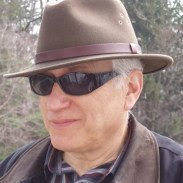Archbishop Fulton J. Sheen was a famous television
personality when I was growing up in the 1950s. He hosted a weekly show called “Life is Worth Living” from 1952
to 1957. He died in 1979.
Five days before his death, he executed a will directing his
funeral be celebrated at St. Patrick’s Cathedral in New York City and that he
be buried in Calvary Cemetery in New York, where he had purchased a burial
plot. However, the then Archbishop of
New York, Terence Cardinal Cooke, asked Archbishop Sheen’s niece and closest
relative for permission to bury her uncle in the crypt at St. Patrick’s
Cathedral. She consented and Sheen was
laid to rest in a crypt under the church’s high altar. His remains are still there.
In 2002, 23 years after Archbishop Sheen’s death, a process
was started in his boyhood home of Peoria, Illinois to determine whether he
should be canonized as a saint,
In 2014, the Diocese of Peoria requested that Archbishop
Sheen’s remains be transferred to Peoria because a shrine was being built
there. Additionally, it was pointed out
that his parents are buried there; most of his relatives live nearby and he was
ordained as a priest there.
Joan Sheen Cunningham, Archbishop Sheen’s niece, now almost
90 year old, who had originally consented to her uncle’s burial at St.
Patrick’s Cathedral, moved in state Supreme Court to have her uncle’s remains
disinterred and transported to Peoria for re-burial.
The Court granted her petition to move Archbishop Sheen’s
remains to Peoria, Illinois.
The Trustees of St. Patrick’s Cathedral appealed to the next
highest court. Five judges of the
Appellate Division, First Department heard the appeal and three voted to
overrule the lower court so the remains could stay at St. Patrick’s until a
hearing could be held to determine Archbishop Sheen’s wishes. Two judges
dissented and agreed with the lower court, which allowed the remains to be
transferred.
As of now, the matter is pending a further hearing (before
the losing party can appeal to the state’s highest court, the Court of Appeals
in Albany). The remains will remain
where they are until a final determination is made.
Interestingly, the majority relied, in part, on an affidavit
of Monsignor Hilary Franco, who stated that he worked with Archbishop Sheen and
was a close friend. He wrote that
Archbishop Sheen wanted to be buried in New York. The majority noted a hearing was necessary to look into what the
Archbishop’s wishes really were before they could allow a relative to control
his remains.
My personal connection:
Monsignor Hilary Franco was the pastor of my parish church
for many years and spoke often of Archbishop Sheen in his homilies. I also dealt with him in my capacity as Town
Attorney with regard to parking in fire zones near the church.
I appeared many times as a defense attorney before Judge
Rosalyn Richter when she sat in Bronx Criminal Court. She wrote the majority opinion.
I also appeared before Judge Troy Webber in Bronx Supreme
Court. She joined in the dissent.
